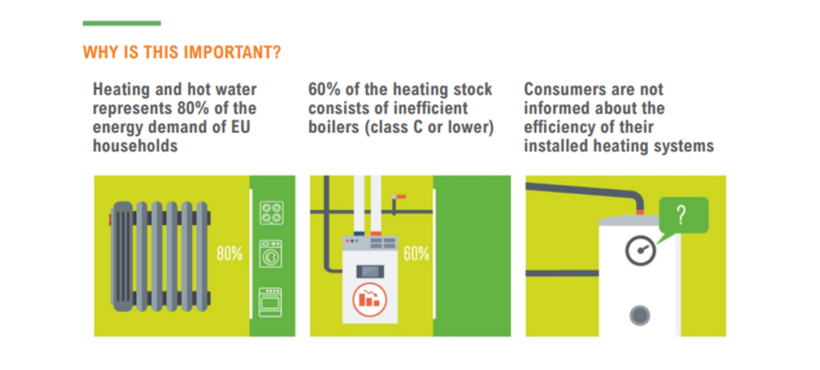In recent years, with the commitment of reaching a climate-neutral Europe by 2050, many companies and organizations have mobilised to adapt their business structure to pursue sustainability, and energy efficiency objectives.
One of the sectors upon which most interest and attention is being placed to reach the race for decarbonization is the residential sector, which is currently the main consumer of heating and cooling in Europe. Heating and cooling account for half of the EU’s energy consumption, and around 80% of the energy consumed in the residential sector is for space climatization and domestic hot water production. In addition, 60% of the European heating stock is made up of old and inefficient boilers (that function with an energy class of C or lower).
In this context, at both the European and national levels, there are space heating and cooling installers and professionals’ organizations and associations that play a key role in accelerating the modernization of the European heating stock and who can significantly contribute to meeting the energy efficiency objectives established by the EU.
Considering the relevance that professionals have on consumer’s decision-making process when considering the replacement of their heating appliances, the framework of the HARP (Heating Appliances Retrofit Planning) project aims to establish relationships with associations and confederations that are dedicated to supporting professionals in this field and that, therefore, have a key role in the modernization of the EU heating stock. They can advise professionals who are associated with them so that they are aware of the current situation, therefore incentivizing them to work towards sustainability and energy efficiency objectives. In this sense, the collaboration between HARP and these types of associations can bring important benefits since the HARPa tool can help them by providing a simple and user-friendly tool that facilitates the advisory work (towards clients) performed by their professional installers.


Leave a Reply